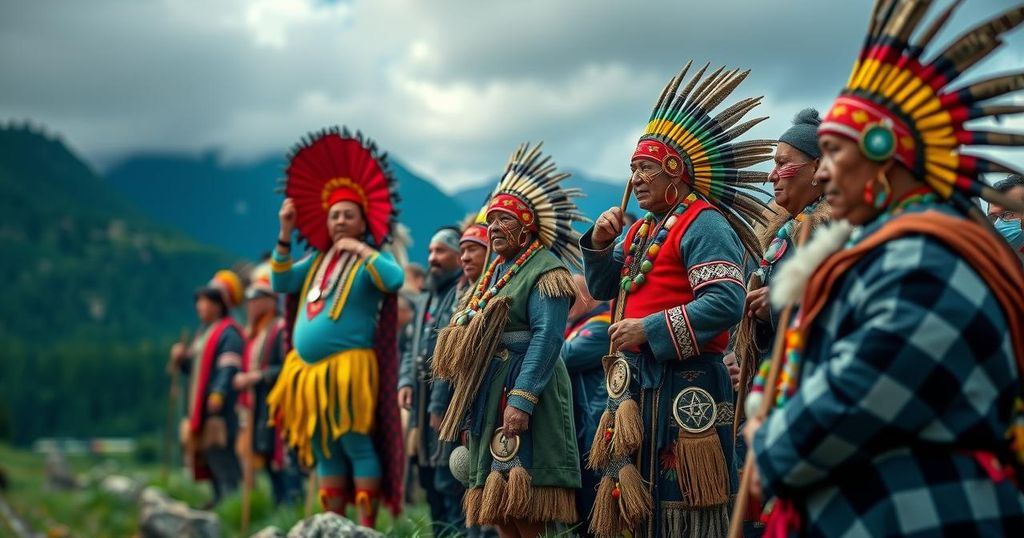At COP29 in Baku, Indigenous representatives highlighted the severe impacts of climate change on their communities, including rising seas and water contamination. They shared stories and solutions rooted in traditional ecological knowledge, emphasizing the importance of their contributions to global climate efforts.
At COP29, being held in Baku, Azerbaijan, Indigenous representatives from around the globe convened to share their experiences with climate change impacts and propose solutions based on their traditional knowledge. They articulated pressing issues such as rising sea levels, extreme droughts, and water contamination, which have severely affected their communities. These individuals, rooted in ancestral land stewardship practices, also presented their innovative adaptation strategies and emphasized the importance of traditional ecological knowledge in confronting global environmental challenges. With their unique connection to nature, they advocate for a holistic approach to climate action that encompasses both social and environmental dimensions.
The conference, COP29, is part of the ongoing United Nations climate negotiations aimed at addressing the substantial threats posed by climate change. Indigenous peoples, who often inhabit vulnerable regions, are disproportionately affected by climate phenomena such as increased temperatures, erratic weather patterns, and destruction of their habitats. They possess invaluable insights and sustainable practices honed over millennia, which can significantly inform global climate strategies. Consequently, their participation in these discussions is essential for fostering more inclusive and effective climate solutions.
The narratives shared by Indigenous leaders at COP29 underscore the urgent need to acknowledge and integrate Indigenous knowledge in global climate strategies. Their testimonies reveal the stark realities faced by their communities due to climate change, while also highlighting their active role in advocating for sustainable practices. As custodians of biodiversity and traditional environmental management, Indigenous peoples represent a critical perspective in the quest for innovative and effective climate solutions.
Original Source: apnews.com






